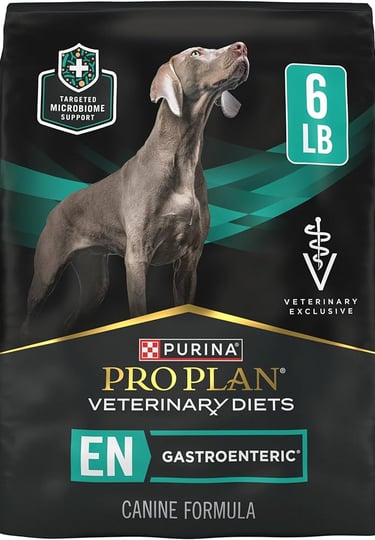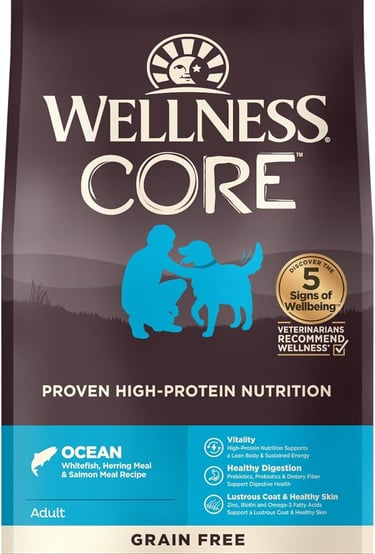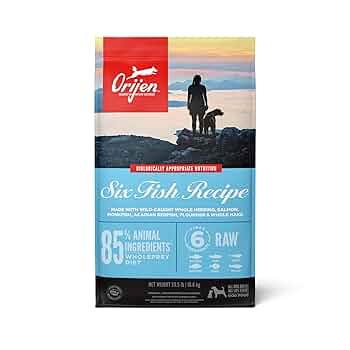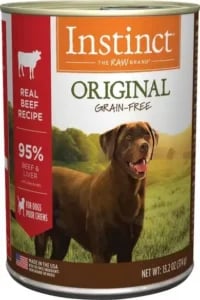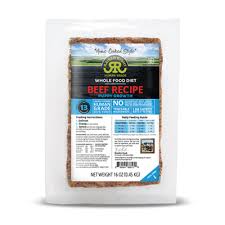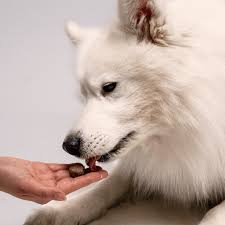Leading Dog Food for Diabetes







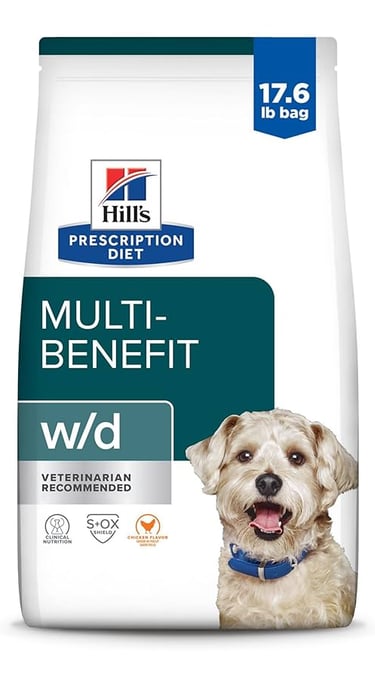

Get the Best Deals
Free Dog Food Alerts
How to Choose the Correct Dog Food
Top Dog Foods for Canine Diabetes in 2025
Living with a diabetic dog doesn't have to be ruff! With the right diet, your furry friend can lead a happy, healthy life. Let's sniff out the best dog foods for diabetes in 2025, guaranteed to keep tails wagging and blood sugar stable.
Amazon Associate
Always consult your vet before making dietary changes, especially for dogs with health conditions. With the right food and care, your diabetic dog can lead a tail-wagging good life!
Hill's Prescription Diet w/d
Amazon Associate
Remember, consistency is key for diabetic dogs. Stick to two meals a day, 12 hours apart, and avoid sneaking treats between meals. With these top-notch foods and a regular feeding schedule, your diabetic dog will be living their best life in no time!
Hill's Prescription Diet w/d is perfect for dogs needing digestive, weight, and glucose management
High-quality protein sources
Complex carbohydrates
Balanced fiber content
This veterinarian-recommended formula is a go-to for many pet parents. It's packed with controlled levels of glucose and fiber, helping to regulate your dog's blood sugar. The recipe includes:
Wellness CORE Natural Grain Free
When choosing diabetic dog food, focus on high protein, low carbs, and plenty of fiber. These nutrients help manage blood sugar levels and keep your pup feeling full and energized.
Purina's EN Gastroenteric Formula is a winner for diabetic dogs with sensitive tummies. It features:
Easily digestible proteins
Controlled glucose levels
Nutrients supporting gastrointestinal health
This formula is excellent for dogs needing both diabetes and digestive support.
For pups who thrive on grain-free diets, Wellness CORE offers a fantastic option. This formula boasts:
High protein content from turkey and chicken
Controlled carbohydrate levels
Essential vitamins and minerals
The balanced nutrition helps maintain muscle mass while managing blood sugar levels.
Purina Pro Plan Veterinary Diets DM Diabetes Management
Orijen Six Fish
For fish-loving pooches, Orijen's Six Fish formula is a great choice. It contains:
High-quality protein from wild-caught fish
Low-glycemic carbohydrates like lentils and chickpeas
Omega-3 fatty acids for overall health
The low-glycemic ingredients help regulate blood sugar, making it ideal for diabetic dogs.
Amazon Associate
Related Articles:
1. What are the top-rated diabetic dog foods available in the market?
2.Are there any grain-free options for diabetic dog food?
3. What are the potential drawbacks of using buffalo protein in dog food?
4. Can buffalo protein cause allergic reactions in dogs?
5. How do I switch my dog's diet if they are allergic to buffalo protein?
Amazon Associate
1.What are the top-rated diabetic dog foods available in the market?
Based on the search results, the diabetic dog food with the highest protein content is Wysong Epigen. This dry dog food formula contains 66.7% protein on a dry matter basis.
Wysong Epigen is designed to mimic a more natural, carnivorous diet, which is particularly beneficial for managing conditions like diabetes where controlling carbohydrate intake is crucial. It avoids starches commonly found in commercial dog foods, focusing instead on high levels of protein and fat to help stabilize blood sugar levels.
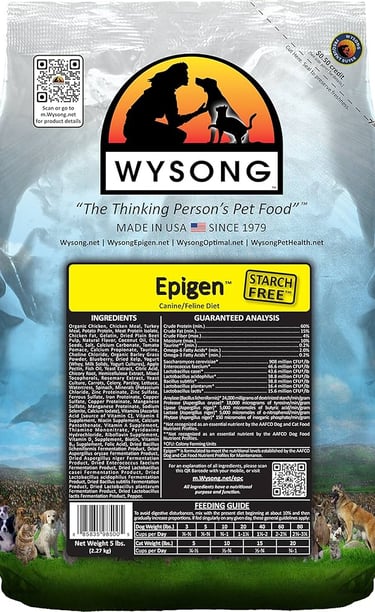

Amazon Associate
Other high-protein options for diabetic dogs include:
Instinct Original Real Beef: 52.3% protein
It's important to note that while high protein content can be beneficial for diabetic dogs, the best food choice should always be made in consultation with a veterinarian, taking into account the individual dog's specific needs and health status.
Amazon Associate
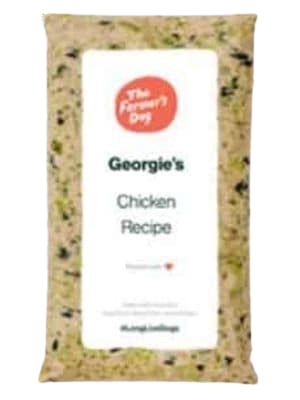

2.Are there any grain-free options for diabetic dog food?
Yes, there are several grain-free options available for diabetic dogs. These formulas are designed to help regulate blood sugar levels while providing essential nutrients:
Wellness CORE Natural Grain Free Dry Dog Food: This formula offers high protein content from quality sources like turkey and chicken, with controlled carbohydrate levels to help manage blood sugar.
Orijen Six Fish Dry Dog Food: Rich in protein from wild-caught fish, this option contains low-glycemic carbohydrates like lentils and chickpeas, making it suitable for diabetic dogs.
Taste of the Wild High Prairie Grain-Free Dry Dog Food: This formula features real roasted meats as the primary ingredient and is supplemented with antioxidants and omega fatty acids.
Zignature Limited Ingredient Dog Food: This line contains high-quality protein sources and limited carbohydrate content, which can help regulate blood sugar levels.
Natural Balance L.I.D. Limited Ingredient Diets Sweet Potato & Fish Formula: This grain-free option features a single source of protein and easily digestible carbohydrates, suitable for diabetic dogs with food sensitivities.
When choosing a grain-free option for a diabetic dog, it's important to look for formulas that are high in protein, low in carbohydrates, and contain moderate amounts of fiber. These characteristics can help manage blood sugar levels effectively. However, it's crucial to consult with a veterinarian before making any changes to your diabetic dog's diet, as they can provide personalized recommendations based on your pet's specific needs.
3.What are the potential drawbacks of using buffalo protein in dog food?
While buffalo protein offers several benefits in dog food, there are potential drawbacks to consider:
Allergic reactions: As with any novel protein source, some dogs may develop allergies or sensitivities to buffalo meat, especially if overexposed.
Digestive issues: Introducing a new protein like buffalo may cause gastrointestinal upset in some dogs, particularly if the transition is not gradual.
Choking hazard: In the case of buffalo jerky treats, large pieces can pose a choking risk or cause intestinal blockages, especially in smaller dogs.
Nutrient imbalance: High-protein diets, including those with buffalo, can make it challenging to maintain proper nutrient balance, such as the calcium-phosphorus ratio, which is crucial for bone health and kidney function.
Calorie density: Buffalo, being a rich protein source, is calorie-dense. Overfeeding can lead to weight gain and associated health issues.
Potential organ strain: For dogs with pre-existing kidney or liver conditions, high-protein diets, including those with buffalo, may increase the workload on these organs.
Cost: Novel proteins like buffalo are often more expensive than traditional protein sources, which can increase the overall cost of the dog food.
It's important to note that while these drawbacks exist, they are not universal and may not affect all dogs. Always consult with a veterinarian before introducing new proteins or making significant changes to your dog's diet.
4.Can buffalo protein cause allergic reactions in dogs?
Yes, buffalo protein can potentially cause allergic reactions in dogs, although it is less common compared to more traditional protein sources. While buffalo is often considered a novel protein and may be recommended for dogs with allergies to common meats, it's not entirely hypoallergenic.
Some key points to consider:
Novel protein status: Buffalo is typically considered a novel protein for most dogs, meaning they are less likely to have been exposed to it previously. This can make it less likely to trigger allergic reactions in some dogs.
Individual sensitivity: As with any protein source, some dogs may develop allergies or sensitivities to buffalo meat, especially if overexposed.
Prevalence of allergies: The most common meat allergies in dogs are beef (34%), chicken (15%), lamb (5%), and pork (2%)1. Buffalo is not listed among these top allergens, suggesting it may be less likely to cause allergic reactions.
Potential benefits: For dogs allergic to common proteins like beef or chicken, buffalo can be a viable alternative that provides high-quality protein while potentially reducing the risk of allergic reactions.
Veterinary guidance: It's crucial to work with a veterinarian when addressing potential food allergies in dogs, as they can help identify specific allergens through dietary trials and elimination diets
.
In conclusion, while buffalo protein may be less likely to cause allergic reactions compared to more common protein sources, it's not guaranteed to be allergen-free for all dogs. Each dog's immune system is unique, and individual sensitivities can vary.
5.How do I switch my dog's diet if they are allergic to buffalo protein?
If your dog is allergic to buffalo protein, you'll need to carefully transition to a new diet using a different protein source. Here's how to switch your dog's diet safely:
Consult your veterinarian: Before making any dietary changes, consult with your vet to determine the best alternative protein source for your dog.
Choose a novel protein: Select a protein your dog hasn't been exposed to before, such as venison, kangaroo, or fish.
Implement an elimination diet: Remove all other food sources and feed only the new novel protein diet for at least 2 weeks to allow symptoms to subside.
Transition gradually: Once you've identified a suitable alternative, switch to the new food slowly over 5-7 days 26:
Days 1-2: 75% old food, 25% new food
Days 3-5: 50% old food, 50% new food
Days 5-6: 25% old food, 75% new food
Day 7: 100% new food
Monitor closely: Watch for any signs of distress or allergic reactions during the transition period.
Be patient: It may take a few weeks for your dog's digestion to fully adjust to the new diet.
Avoid other foods: Ensure no one feeds your dog anything besides the new diet during this transition period.
Reintroduce foods slowly: Once symptoms have improved, you can gradually reintroduce other foods one at a time to identify safe options.
Remember, every dog is different, and some may require a longer transition period. Always consult with your veterinarian if you notice any concerning symptoms during the diet change.

